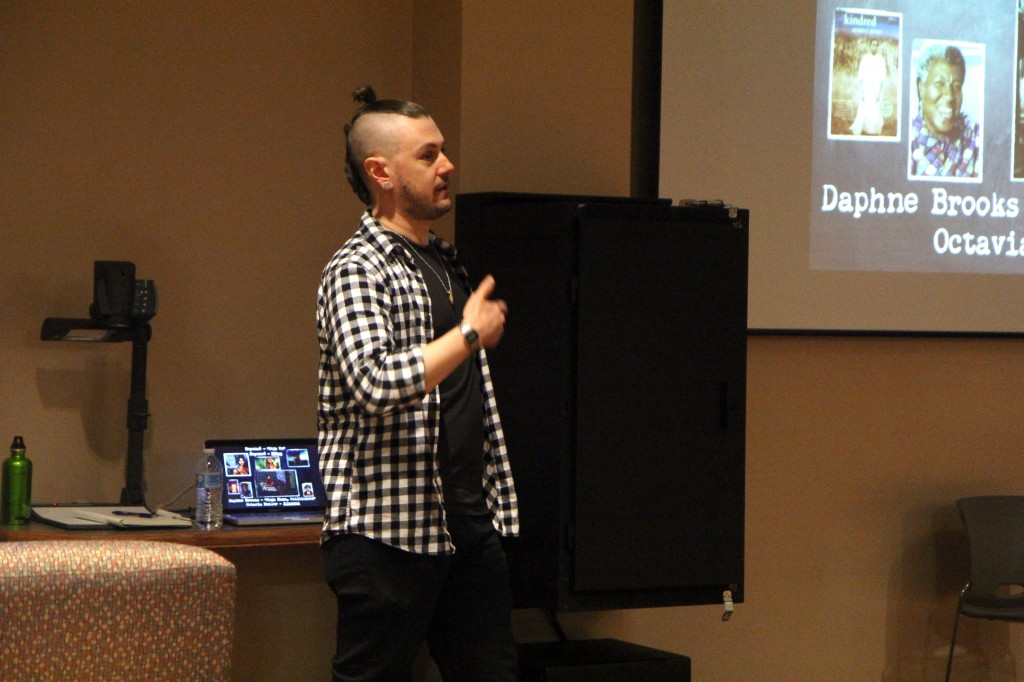
Queen Bey may rule the world of popular music, but one professor from Rutgers University considers Beyoncé a political force to be reckoned with.
Kevin Allred, who lectures on women’s and gender studies and American studies at Rutgers, gained national attention in early January when news of his specialty class, “Politicizing Beyoncé,” went viral.
“It happened around the same time that her album came out, so when people were Googling her, they found me,” Allred said.
His class examines the lyrical content of Beyoncé’s songs, as well as the use of metaphorical imagery in her music videos.
During his presentation Thursday to 30 students at Binghamton University, Allred described the ways in which Beyoncé’s latest self-titled album speaks out on feminism and black female stereotypes.
Allred showed the music videos to several of her songs, including “Partition” and “Jealous,” while urging the audience to remain attuned to particular social messages that were being conveyed in the videos.
According to Allred, black women’s sexuality has always been used against them, and Beyoncé exposes this in her video for the song “Kitty Kat.”
“When a black woman enters a room, her sexuality enters first, and then her body — in the video, we see a huge black cat, that is, a huge pussycat, enter first, and then Beyoncé’s small figure,” he said. “She’s seen first as a sexual object, and then as herself.”
Allred said he firmly believed Beyoncé’s influence on modern feminism is a positive one.
“I think she’s turning a new audience on what feminism is,” he said. “Feminism has negative stereotypes, so I think the fact that she’s using it in her music will help turn people away from that negative light.”
Fiona Tarzy, a sophomore majoring in philosophy, politics, and law and vice president of academics (VPA) of the Mountainview College Council, said she got the idea for the event after reading about Allred’s class in Rolling Stone.
“It was the perfect because my first goal as VPA was to reach students that wouldn’t otherwise be interested in after-school learning; my second goal was to help Binghamton understand feminism as something people shouldn’t be afraid to identify with,” Tarzy said. “Beyoncé achieves this by using her stature as a popular public figure to present feminism in a positive light.”
Allred opened the floor for questions, responding to one student’s claim that the singer’s overt sexuality in her music videos perpetuated a negative black stereotype.
“I think she’s trying to say, ‘You’re the ones watching, you’re the ones seeing me in this way,’” Allred said. “By putting her own body on display, she’s doing a performance rather than objectifying herself.”
Haley Silverstein, a sophomore majoring in political science, said she found the presentation insightful.
“This definitely made me think about Beyoncé differently,” she said. “I don’t think that celebrities influence me personally, but after hearing what he said, I see how she definitely has a broader impact outside of the fashion or music industry.”


